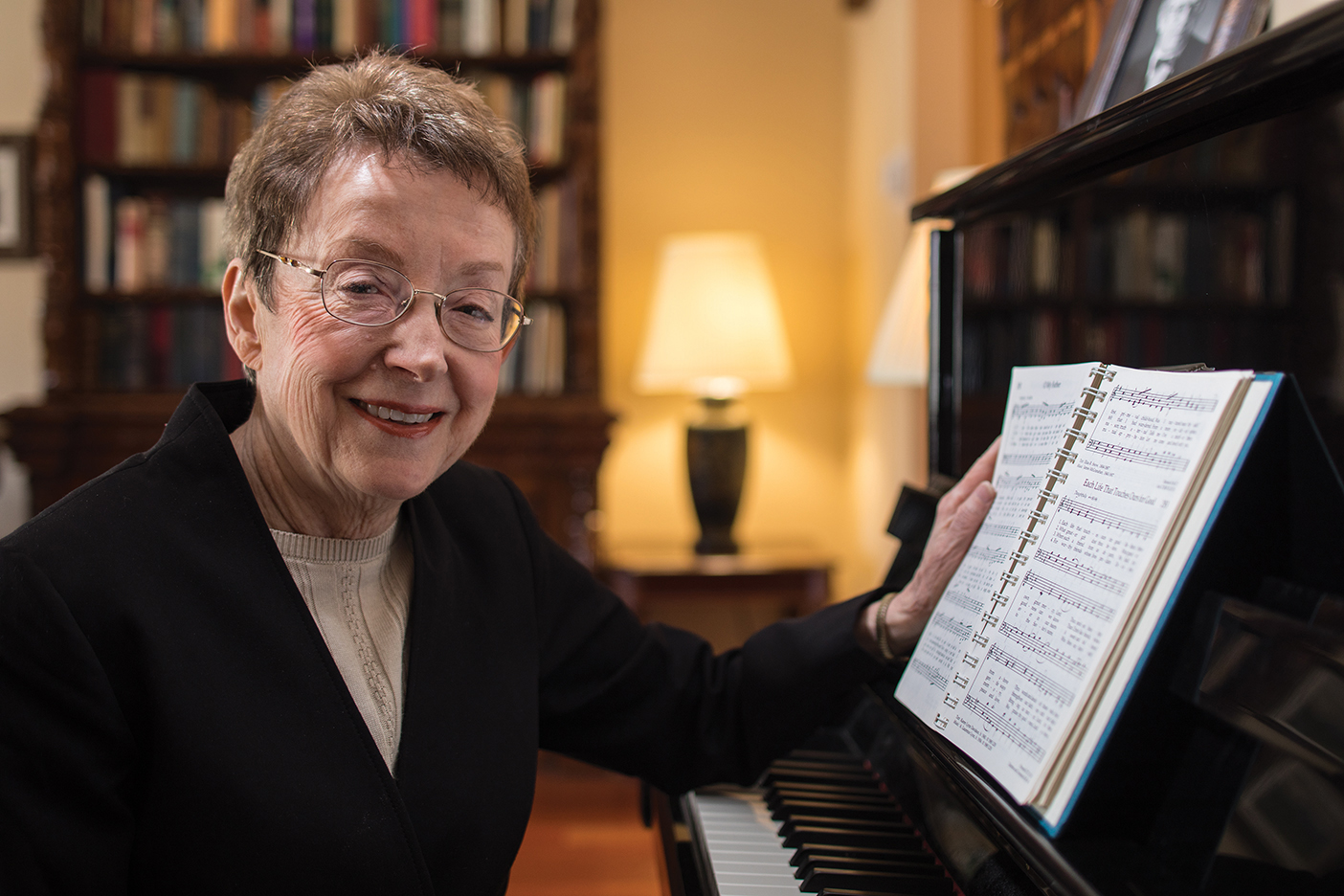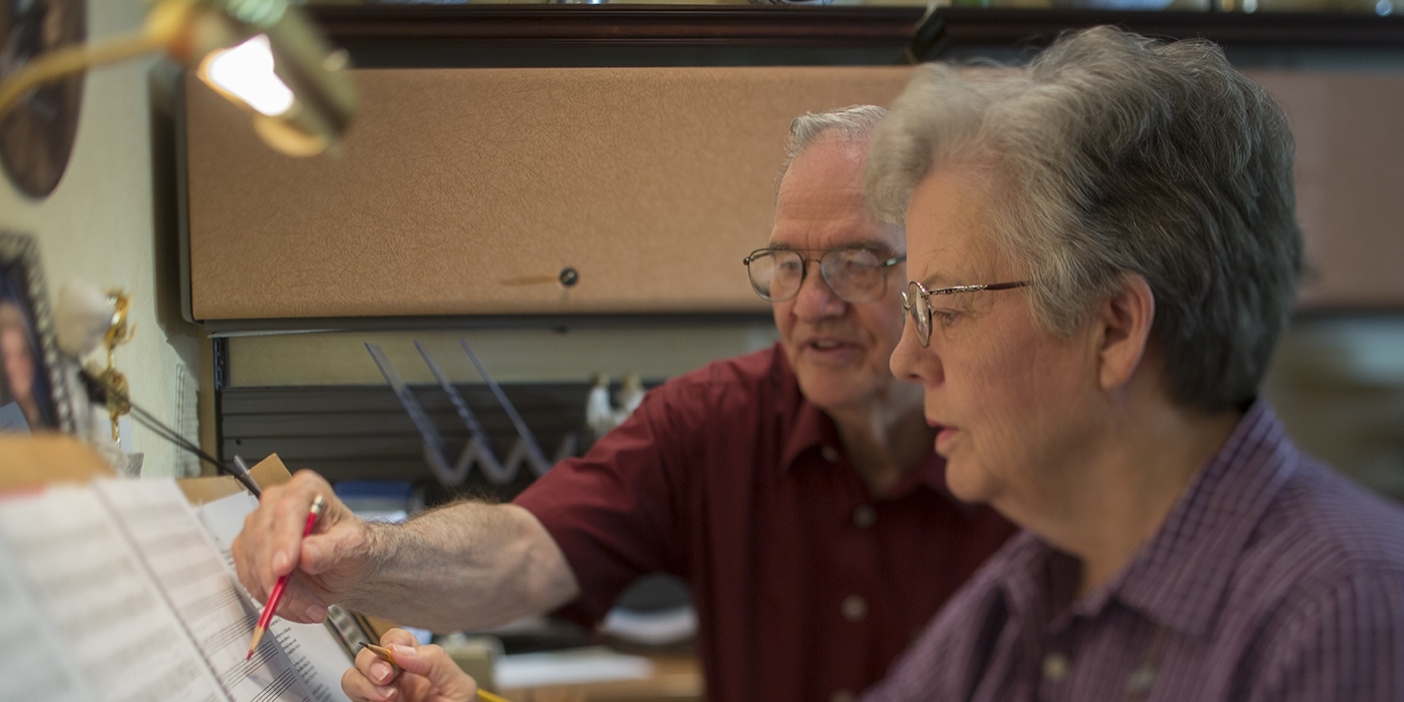
I’m grateful for any comfort I could have given someone who had a loved one pass away,” says Karen Lynn Davidson (BA ’64, MA ’66), the poet who wrote “Each Life That Touches Ours for Good.” Davidson also wrote “O Savior, Thou Who Wearest a Crown,” and she hopes her words have helped build faith in the lives of Church members. “If I can play a role, that’s wonderful and very rewarding.”
As a member of the committee that created the current LDS hymnbook and as a lifelong student of poetry and music, Davidson has learned a thing or two about hymns and hymn writing. Nearly two decades ago, the New Era published seven tips from Davidson for aspiring hymn writers (see “Choose Your Words,” New Era, September 1999). She recently revisited those tips for BYU Magazine readers.
1. Watch for Hymn Text Ideas
Hymn inspiration can come from scriptures, talks, personal experience, or personal revelation. Determine which gospel principles are especially meaningful in your life, and be alert to hymn ideas relating to those principles.
2. Work, Don’t Wait
Waiting for lightning-like inspiration sounds poetic, but the best way to find your inspiration is through consistent hard work. “Haydn, the composer, got up every day, dressed himself nicely, and sat down at his desk to go to work,” Davidson says. “You have to sit down and focus and see what happens.”
3. Write, Write, Write
Revising a draft can be daunting. Davidson recalls composing draft after draft of the same text over several days and often overnight. “The willingness to revise—to rewrite repeatedly—is a characteristic of every skilled writer.” Davidson says Susan Evans McCloud is a good example of revising very good text into even more refined and spiritually insightful text, as with her revision to the first verse of “Lord, I Would Follow Thee”:
Intermediate Version
We are children of our Father
Here to prove ourselves alone.
Surely those who help another
Find a strength beyond their own.
We are children of our Father,
Lord, may thy way be shown.
Final Version
Savior, may I learn to love thee,
Walk the path that thou hast shown,
Pause to help and lift another,
Finding strength beyond my own.
Savior, may I learn to love thee—
Lord, I would follow thee.
4. Focus (Creatively) on Your Topic
A common weakness of hymn writers is trying to include too many ideas, says Davidson. Once you have chosen a topic, discipline yourself to maintain the focus, and work to find a creative, new approach. With centuries of hymns behind us, Davidson says, “we don’t have a lot of new subjects. It’s a real challenge to write a new sacrament text, because what do you say? If you’re Eliza R. Snow, you back up into the eternities and you say, ‘How great the wisdom and the love / That filled the courts on high.’ That’s a different angle.”
5. Rhyming and Timing Matter
Hymn texts follow a set pattern for meter and rhyme (see p. 405 of the Church hymnbook). Davidson suggests choosing a favorite hymn tune that matches the meter you’ve chosen. “Use it as a ‘temporary home’ for your words,” she wrote in the New Era. “Make sure every word of every verse of your hymn is an exact match to notes of your temporary tune.”
6. Keep the Wording Simple
Using biblical language, with word endings such as “-eth” (taketh or goeth) may distance audiences from hymns. “Your responsibility is to use words that have meaning in your own time,” Davidson asserted in the New Era. She counsels writers to avoid stilted and artificial language, and for sacred hymn texts, she says it is not appropriate to use slang or other informal words.
7. Never Stop Writing
Like good cheese, your writing abilities may take time to mature. “O My Father” was written by Eliza R. Snow 19 years after she first began composing poetry. Davidson encourages young writers to share their work and accept suggestions from others. “Your hymn-writing skills will grow over the years,” she says. “Writers become writers; they don’t just decide to be writers.”












